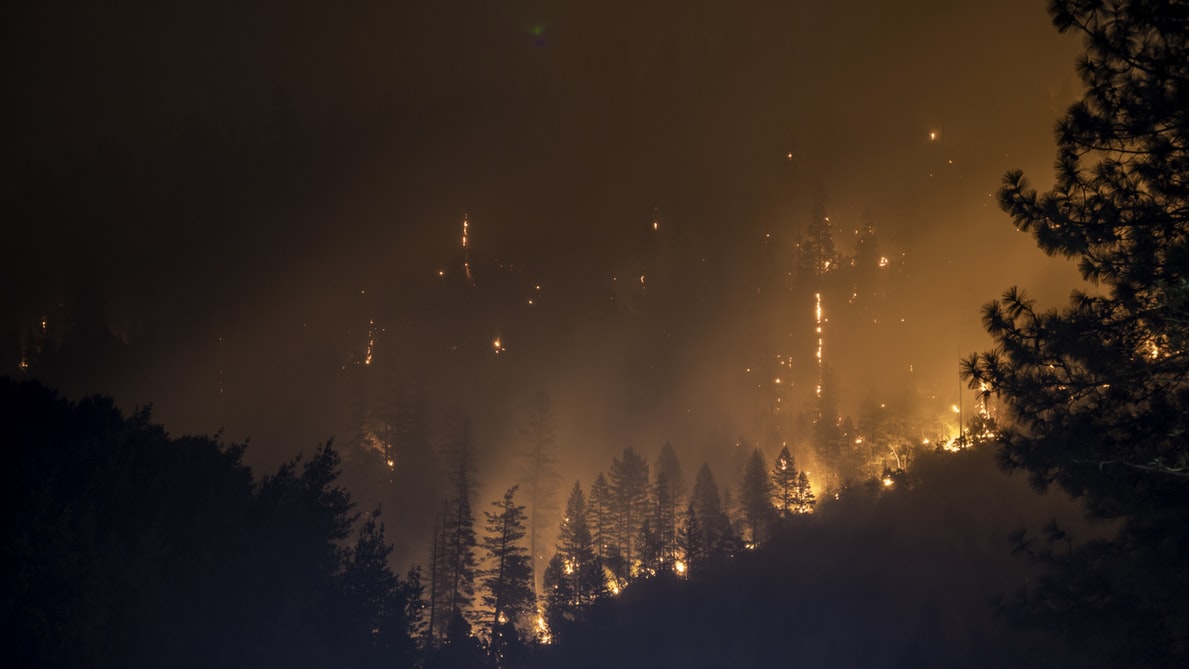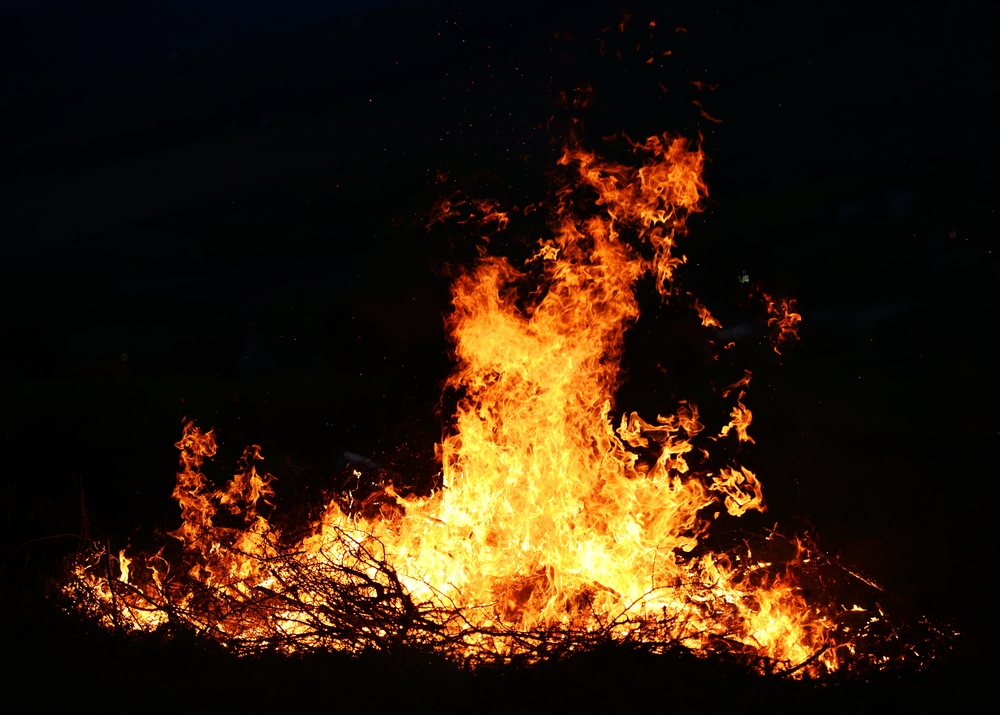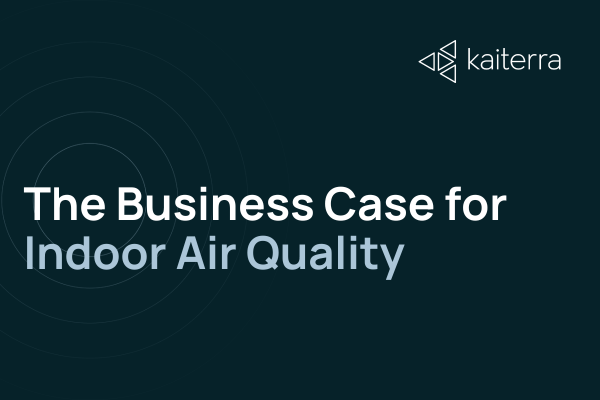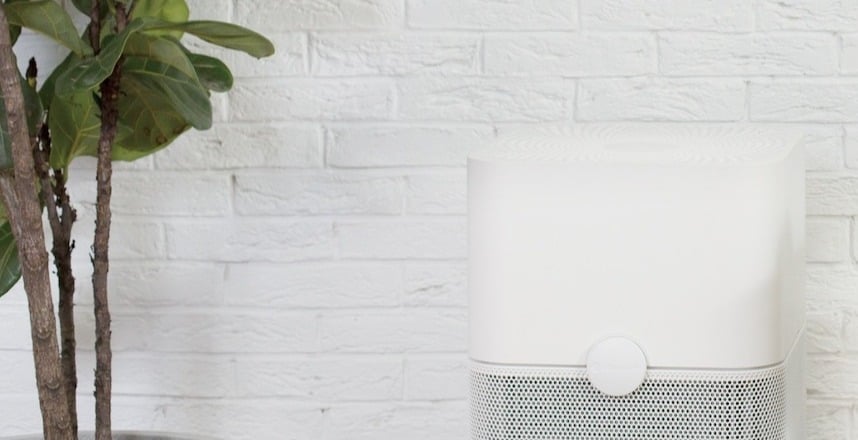Newsletter
With the rise of global climate change, wildfires are growing more intense and frequent. Wildfires are burning through double the amount of land they did forty years ago, and every year a new place seems to be on fire.
With this unprecedented rise in wildfires, the smoke wildfires create are becoming an increasing concern worldwide. Beyond the physical destruction of wildfires and forest fires, the smoke from wildfires also poses dangers to human health.

Wildfire smoke can travel for miles, carried by strong wind, and sometimes moving away simply isn’t an option. So, what are some practical, concrete ways to reduce the amount of wildfire smoke you’re breathing? For many, turning to existing air pollution mitigation devices, such as air purifiers, is the answer. But do air purifiers really help control wildfire smoke?
Will an Air Purifier Help With Wildfire Smoke?
Because there are different kinds of air purifiers out there on the market, answering the question of “will an air purifier help with wildfire smoke” isn’t a yes-or-no kind of answer. Let’s first go through what you can expect from each kind of purifier so we can narrow down the choice best suited to wildfire smoke.
- HEPA air purifiers - HEPA air purifiers, also known as mechanical purifiers, physically strain out particles and dust by forcing air through a HEPA filter (no worries, we will explain more about HEPA purifiers later). While HEPA filters won’t remove odors or VOCs, they are very effective devices for getting rid of particulate matter.
- Activated carbon air purifiers - Air purifier with activated carbon filters trap gases in a bed of activated carbon, or charcoal. These devices are handy for eliminating VOCs or odors, but are not effective for removing particulate matter.
- Ionic air purifiers - Also known as electric purifiers, ionic air purifiers use electrical charges to force airborne particles to settle either within the device or on outside surfaces. Generally, these air purifiers are less effective than HEPA purifiers and may produce ozone.
- Ozone generators - Ozone generators can be used in industrial or medical settings to kill airborne bacteria, but should never be used in an indoor, home setting as they produce ozone, a harmful air pollutant.
- Ultraviolet (UV) air purifiers - Like ozone generators, UV purifiers utilize ultraviolet light to kill airborne bacteria and organisms. These purifiers are largely ineffective for eliminating airborne particles like dust, and may produce ozone.
As we can see above, the type of air purifier you need depends on what you want to remove from your air and what setting you will be using it. Since we are looking at wildfire smoke, which contains a large amount of particulate matter, we need an air purifier that captures airborne particles. The type of air purifier that completes this task most effectually is the HEPA air purifier.
Read More: 11 Frequently Asked Questions about Air Purifiers
The Best Air Purifier for Wildfire Smoke: HEPA Purifiers
Because HEPA air purifiers are the most effective air purifiers for eliminating particulate matter, your best bet for controlling wildfire smoke in your home is a HEPA purifier. By forcing air through a physical barrier, HEPA purifiers can directly reduce the amount of particulate matter circulating in your home without the added cost of ozone production.
The acronym HEPA stands for high-efficiency particulate air, and it refers to a standard of air filtration for particulate matter. True HEPA filters are evaluated on what percentage of fine dust (specifically PM0.3) that they reduce. To make the grade, a true HEPA filter must remove 99.97% of PM0.3 on the first pass through the filter.

Why is this important? The same particulate matter diameter used to evaluate HEPA filters is the most common size found in wildfire smoke. Wildfire particulates tend to be between 0.4 and 0.7 μm in diameter, and fall under the umbrella term of PM2.5 or fine dust. A true HEPA filter will significantly cut down on all particulate matter in your home, including the specific size found in wildfire smoke.
As always, you should inspect the specific air purifier before purchasing it, as the quality may vary product-to-product. Similarly, ensure that your air purifier is equipped with a genuine HEPA filter and replace the filter often. Under normal circumstances a filter can last six months to a year, but elevated levels of wildfire smoke will make this period much shorter. Using an indoor air quality monitor in conjunction with a HEPA purifier will let you know when to replace your filters, as you can directly observe air purification time and see when it takes longer than normal to cut down wildfire smoke in your home.
Other Ways To Protect Yourself From Wildfire Smoke
If you haven’t yet found a suitable air purifier, or if you want some supplemental techniques to keep your air healthy, there are some simple things you can do to protect yourself.
Keep your windows shut
While a bit of an obvious answer, keeping your windows shut when smoke levels are high is one of the most straightforward ways to curb wildfire smoke in your home. While it’s good to open your windows when ambient air pollution levels are low to ventilate indoor pollutants, wildfire smoke can easily waft into your home through open windows.

Before opening any windows, be sure to check out your local AQI values and evaluate if it is safe to open your windows. Likewise, having access to personalized air quality data through an IAQ monitor will help you make the best decision for you and your family.
Put away the vacuum
Airborne particulates don’t stay in the air forever. Eventually, the particulate matter from wildfire smoke will settle on surfaces like the floor, but this dust is often invisible to the human eye and can easily get swept back up into the air.
Instead of vacuuming, which can blow wildfire smoke precipitates into the air, use a mop instead. This way you can keep your home and air clean at the same time.
Keep it clean
As mentioned above, particulate matter from wildfire smoke can settle on flat surfaces throughout your home, not just the floor. By regularly wiping down these surfaces, you can prevent these particles from entering your air once more, and you can cut down on other indoor air pollutants like bacteria, viruses, and mold.
Pick up some pollution masks
Sometimes venturing outdoors on smoky days is unavoidable. After all, we all have to go to work, drop the kids off at school, or go to the grocery store. When you do so, however, you can expose yourself to the dangers of wildfire smoke.
One way to protect yourself from wildfire smoke on-the-go is by wearing a pollution mask. While not completely effective against all particulates, a good quality pollution mask (for example, an N95 mask) will significantly reduce the amount of particulate matter your breathing in. Make sure that the mask is effective for filtering particulate matter; a simple handkerchief will not protect you from the microscopic particles present in wildfires smoke.
Get an air quality monitor
Sometimes, it’s difficult to tell if your purifier is broken just by looking at it. If your purifier is engaged, yet pollution levels remain high or take a long time to decrease, this is a sign that your purifier is not working properly. The only way to know with certainty that your air purifier is working is by using data provided by an air quality monitor.

Air purifiers often come with a built-in air quality monitor, but these are quite unreliable (as we cover in this article). A personal air quality monitor dedicated to providing you with better data will help you make healthier decisions for you and your family, and you can bring this monitor with you in the car or to work to make sure you are protected from wildfire smoke throughout your day.
With wildfires becoming an increasing threat, we need to stay informed and vigilant. For more information about wildfires, including how they can start and what you can do to protect yourself, check out our article below!






.png?width=200&height=148&name=Menu%20C%20(2).png)

.png?width=307&height=228&name=Menu%20-%20D%20(1).png)
.png)





